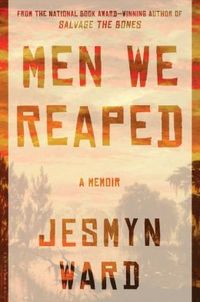

Purchase
Bloomsbury
October 2013
On Sale: September 17, 2013
ISBN: 160819521X
EAN: 9781608195213
Kindle: B00CIR97T8
Hardcover / e-Book
Add to Wish List
Non-Fiction Memoir
In this stirring and clear-eyed memoir, the 2011 National
Book Award winner contends with the deaths of five young men
dear to her, and the still great risk of being a black man
in the rural South.
“We saw the
lightning and that was the guns; and then we heard the
thunder and that was the big guns; and then we heard the
rain falling and that was the blood falling; and when we
came to get in the crops, it was dead men that we reaped.”
—Harriet Tubman
In five years, Jesmyn Ward lost
five young men in her life—to drugs, accidents, suicide, and
the bad luck that can follow people who live in poverty,
particularly black men. Dealing with these losses, one after
another, made Jesmyn ask the question: Why? And as she began
to write about the experience of living through all the
dying, she realized the truth—and it took her breath away.
Her brother and her friends all died because of who they
were and where they were from, because they lived with a
history of racism and economic struggle that fostered drug
addiction and the dissolution of family and relationships.
Jesmyn says the answer was so obvious she felt stupid for
not seeing it. But it nagged at her until she knew she had
to write about her community, to write their stories and her
own.
Jesmyn grew up in poverty in rural Mississippi.
She writes powerfully about the pressures this brings, on
the men who can do no right and the women who stand in for
family in a society where the men are often absent. She
bravely tells her story, revisiting the agonizing losses of
her only brother and her friends. As the sole member of her
family to leave home and pursue higher education, she writes
about this parallel American universe with the objectivity
distance provides and the intimacy of utter familiarity. A
brutal world rendered beautifully, Jesmyn Ward’s memoir will
sit comfortably alongside Edwidge Danticat’s Brother, I'm
Dying, Tobias Wolff's This Boy’s Life, and Maya
Angelou’s I Know Why the Caged Bird Sings.
Comments
No comments posted.
Registered users may leave comments.
Log in or register now!
| 

 © 2003-2025 off-the-edge.net
all rights reserved Privacy Policy
© 2003-2025 off-the-edge.net
all rights reserved Privacy Policy